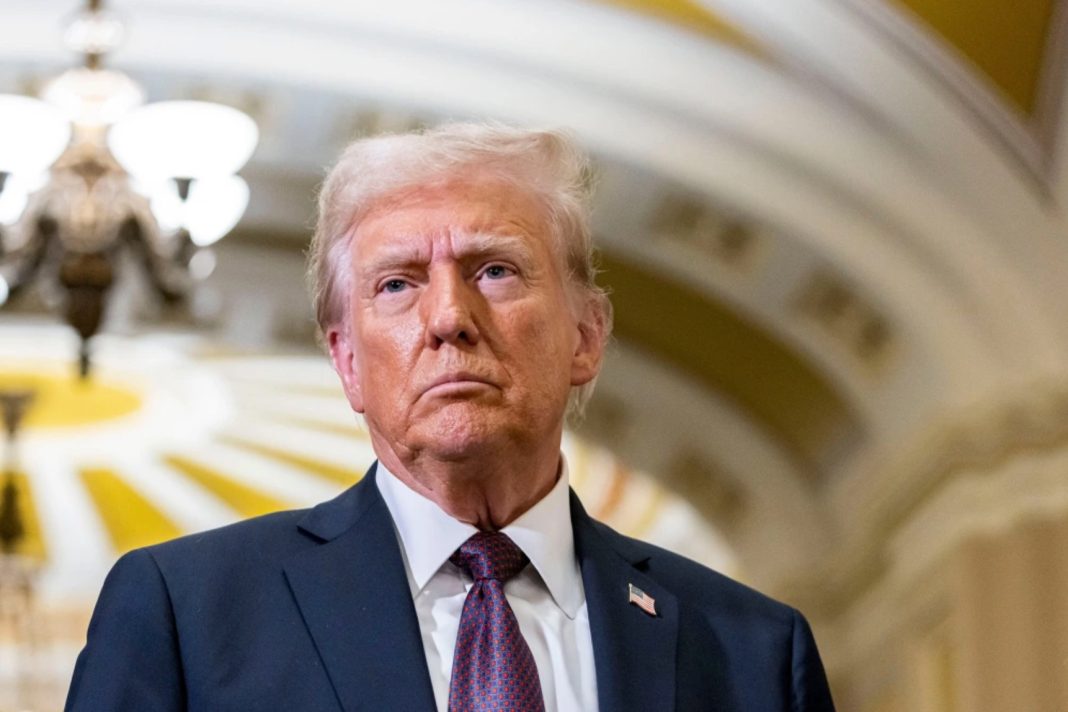SACRAMENTO, USA — The state of California has filed a lawsuit against the Trump administration, challenging President Donald Trump’s unprecedented decision to deploy 2,000 National Guard troops to Los Angeles without the consent of Governor Gavin Newsom.
Filed on Monday, June 9, 2025, by Attorney General Rob Bonta, the suit accuses the president of overstepping his constitutional authority and violating state sovereignty by invoking a rarely used federal statute to justify the deployment.
“Let me be clear: There is no invasion. There is no rebellion,” Bonta said during a press conference.
“The president is trying to manufacture chaos and crisis on the ground for his own political ends.”
Trump authorised the deployment Saturday, June 7, 2025, citing ongoing protests over immigration raids in the Los Angeles area that have at times turned violent.
It is the first time in six decades that a U.S. president has mobilised National Guard forces in a state without its governor’s approval — a move legal experts say is nearly without precedent.
In defending the deployment, the White House pointed to a provision in federal law that permits the president to call up National Guard units during a foreign invasion, rebellion, or when regular forces are deemed insufficient to enforce federal law.
However, critics argue the current conditions in California do not meet any of those thresholds.
Bonta said the administration “jumped from 0 to 60, bypassing law enforcement expertise and evaluation,” and described the move as “an unnecessary and inflammatory escalation that only further spread unrest.”
The Trump administration did not immediately comment on the lawsuit.
However, the president, speaking at a White House event shortly after the suit’s announcement, praised the deployment.
“They really helped,” he said.
Governor Newsom, a Democrat and potential 2028 presidential contender, had previewed the lawsuit in a televised interview on Sunday, June 8, 2025, calling Trump’s action “illegal, immoral, and unconstitutional.”
He later sent a formal letter to Defence Secretary Pete Hegseth requesting a reversal of the order, arguing the deployment infringes on the state’s right to manage its own security resources.
“There is currently no need for the National Guard to be deployed in Los Angeles,” Newsom wrote.
“This is a serious breach of state sovereignty that seems intentionally designed to inflame the situation.”
According to Bonta, the governor’s request to the Pentagon was ignored.
Defence officials have instead doubled down, with U.S. Northern Command announcing that an additional 500 Marines stationed in Southern California are on standby for deployment to Los Angeles if needed.
The clash has intensified long-standing tensions between the Democratic-led state and Trump’s Republican administration.
All 23 Democratic governors in the United States released a joint statement backing Newsom and criticising the federal action.
“Governors are the Commanders in Chief of their National Guard, and the federal government activating them within their own borders without consultation is ineffective and dangerous,” the governors said.
The deployment has also drawn sharp criticism from constitutional scholars, who note that while the Insurrection Act and related laws provide the president with emergency powers, their use without state consent is historically rare and highly controversial.
“Congress recognised that the governors of the 50 states could be trusted to activate the [National Guard] when necessary,” wrote Carl Tobias, a professor of law at the University of Richmond.
“Most presidents have had the good sense to defer to that judgment.”
The lawsuit marks the latest chapter in a widening rift over federal-state authority in the United States and is expected to set the stage for a closely watched legal battle with national implications.
While Attorney General Bonta expressed confidence in the state’s case, he acknowledged that the legal provision being invoked by the president has faced limited judicial review.
“It’s been rarely used, for good reason,” he said.
“The conditions that trigger its use are rare and infrequent — and do not exist here.”







![Honouring a Rare Soul: Celebrating the Life of AVM Terry Omatsola Okorodudu [MUST READ] Air Vice Marshal Terry Omatsola Okorodudu](https://www.thetrentonline.com/wp-content/uploads/2026/01/Joan-and-Bidemi-Okorodudu-The-Trent-100x70.jpg)